Ranju Sarkar in New Delhi
Real estate prices in parts of Delhi and Mumbai are likely to correct 10-15 per cent in the next few months, as rising interest rates could see customers defer their buying decisions, say builders and real estate experts in these cities.
Rajesh Goyal, chairman, RG Group, a Noida-based builder, expects home prices in Delhi to correct 15-20 per cent in the next few months. Prices have gone up 40-50 per cent in the last 7-8 months.
''When prices increase, people start deferring," he said. Goyal says that though land prices have doubled in many areas in Delhi from Rs 100,000-150,000 a metre to Rs 250,000-300,000 a metre, there are hardly any transactions at these prices.
. . .
Mumbai, Delhi housing prices may drop 15%
In Mumbai, where primary sales have dried up, the situation is more acute, say experts.
"Sales have gone down. There are virtually no sales on Thursday," said Pankaj Kapoor, chief executive officer, Liases Foras, a non-brokerage real estate research firm.
''In the last 3-4 quarters, builders indulged in artificial sales by transferring the ownership of 300-400 flats to investors, brokers or underwriters. We flag such projects," he said.
A field study by Liases Foras has found the proportion of such projects ha s gone up from 12 per cent in the quarter ended September, 2009, to 43 per cent in the quarter ended September, 2010.
Sales have fallen from 17,000 units in September, 2009 to 10,000 units in September, 2010.
In the December quarter, sales fell by an additional 15 per cent.
. . .
Mumbai, Delhi housing prices may drop 15%
The firm studied 2,500 projects across the Mumbai Metropolitan Region and found that 30-40 projects account for 43 per cent of sales.
This shows that the market is very narrow. With prices soaring, buyers are struggling to bring in their contributions.
Banks now lend only 80 per cent of the cost of a flat, compared with the earlier 85-90 per cent.
''In most markets, builders are seeking 15-20 per cent in cash, as they see a correction. They have also increased the super built-up (saleable) area.
In 2006, if the loading (the difference between what you pay for and the carpet area of your flat) was 40 per cent, on Thursday it has gone up to 70 per cent, or even 100 per cent in some cases,'' Kapoor said.
. . .
Mumbai, Delhi housing prices may drop 15%
Property buyers are facing a double whammy. Not only have property prices increased three-fold since 2005, saleable areas have also increased, and this has resulted in a rise in the prices of flats.
Kapoor expects prices in Mumbai to correct 15-20 per cent gradually, and then not rise for the next two years.
However, builders, after selling to investors at higher prices, would try to hold on to the prices.
''They have other means. On Thursday, the negotiations are not just on prices but also on flat sizes; they negotiate for less saleable area," according to an expert.
. . .
Mumbai, Delhi housing prices may drop 15%
The National Capital Region saw an addition of 147,000 homes in 2010, or almost half of what Mumbai, Pune, Hyderabad, Chennai and Bengaluru added together in the period.
Kapoor estimates that Gurgaon prices will correct 20-25 per cent, while prices in Noida-Greater Noida, Sonepat and Faridabad may correct 10-15 per cent -- the higher the price, the higher will be the correction.
So, in a market like Noida, where the cost of land is relatively low and apartment prices are Rs 2,500-3,000 per sq foot, the scope for correction is less. Mumbai could see a correction of 25-30 per cent, especially in areas in Central Mumbai like Parel.
This is not the case in areas like Kalyan-Dombivili, say experts.
Sanjay Dutt, chief executive officer (operations), real estate consultant Jones Lang Lesalle, expects a major correction in Mumbai and Delhi and stagnation across markets.
. . .
Mumbai, Delhi housing prices may drop 15%
"Many builders borrowed money to buy land in home markets, but the sales have dropped.
"There's a mismatch between the flow of capital and the need for capital. Some have opened their doors, while some are holding their breath and borrowing at 17-18 per cent," he said.
Shobhit Agarwal, CEO, Protiviti Consulting, feels that any increase in the cost of funds will dampen demand.
"Speculative demand thins out as interest rates rise. Once demand slows down, prices soften, as people defer buying. . . .We are in the early stage of what we saw in 2008-09," said Agarwal, who advises realty firms on M&As, risks and audit.

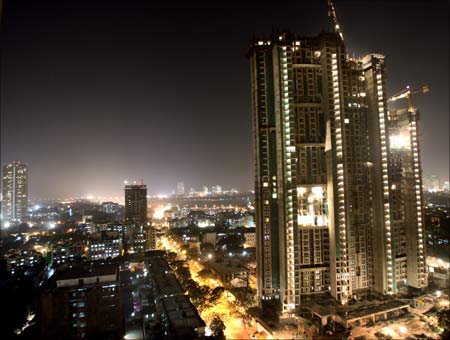

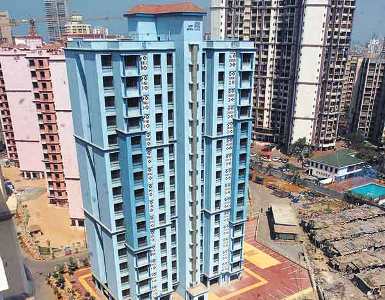
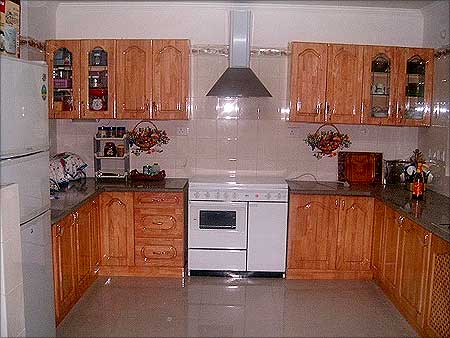

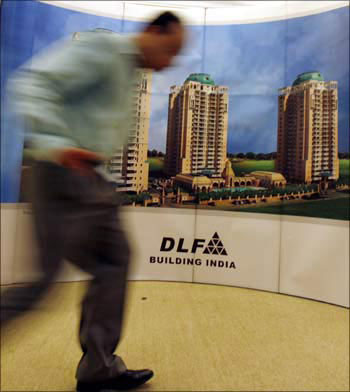
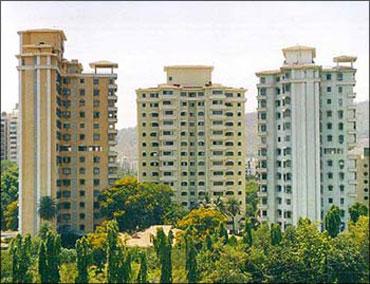

article